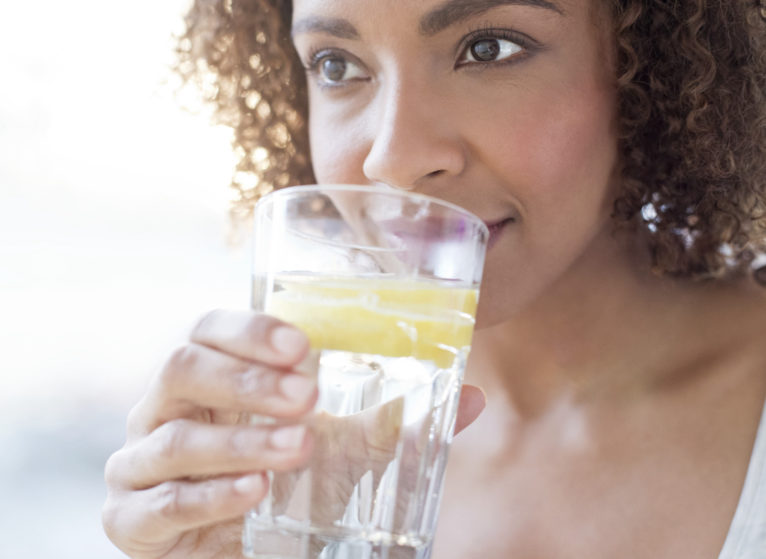Around 12% of people will have a kidney stone in their lifetime. Most happen in people over age 40. So if you are middle-aged and haven’t had the pleasure, you likely know someone who has. Also likely: you’ve heard through the grapevine that a kidney stone can be pretty painful. Maybe you’ve even got a tip or two on kidney stone prevention. But before you try to tackle a stone on your own, be sure you have all the facts on this common condition.
Are You at Risk for Kidney Stones?
People with certain medical conditions, such as diabetes, obesity, and vascular disease, are more likely to get kidney stones. Age is also a factor.
Your risk of developing a kidney stone increases for every year until you reach age 70. Then your risk levels off, according to urologist Nishant Patel, MD. Once you have one, another stone is probably in your future. “If you have a kidney stone, your risk of having another one within 10 years is almost 50%,” says Patel.
Another risk factor is family history. If you have a close relative or multiple relatives who suffer with kidney stones, odds are, you may, too. “A family history of kidney stones increases your chances twofold,” says Patel.
Then, there’s diet. “One of the most common causes of kidney stones is not drinking enough fluids,” says Patel. “But folks who have a high-sodium diet, eat too much animal protein and not enough fruits and veggies are also at increased risk. Although, even certain foods we may consider healthy — spinach, seeds, nuts, potatoes, beets — can cause kidney stones. They contain oxalate, a waste product that may build up in the kidneys.”
Kidney Stone Prevention: Dos & Don'ts
There’s a lot of misinformation out there about how to prevent kidney stones. Some of the most common myths, says Patel, are related to diet. Here’s what the doctor recommends for kidney stone prevention:
DON’T
- Load up on cranberry juice. Although cranberry juice can help prevent urinary tract infections, it isn’t recommended for kidney stones. “Cranberry juice is quite acidic,” says Patel. “It also has oxalate, which can contribute to kidney stones, so we don’t recommend it.”
- Skimp on dietary calcium. Calcium is a key component of two types of kidney stones: calcium oxalate stones and calcium phosphate stones. So it makes sense that many assume that you should avoid calcium-rich foods to prevent these from forming. In fact, the opposite is true. “The right amount of dietary calcium can actually bind to the dietary oxalate that causes kidney stones. Instead of being absorbed by the gut, filtered through the kidney and out into the urine, oxalate passes through the stool. So if you limit your intake of dietary calcium — milk, cheese, yogurt — you’re likely to form more kidney stones,” says Patel.
DO
- Stay hydrated. Drinking lots of water is the number one thing you can do to prevent kidney stones.
- Squeeze in some lemon or lime. Citrus fruits have citrate, which can help block the formation of kidney stones.
- Eat more fruits, vegetables, and whole grains. All part of a healthy diet, these foods can help keep your weight in check and provide essential nutrients that stop stones from forming.
- Limit processed foods, animal protein, and other foods high in sodium. High salt levels in the urine are one of the key factors that cause kidney stones.
Get the Stone Analyzed
There are four types of kidney stones. Each has its own unique makeup. Once you know which type you have, your doctor can tailor a diet to your needs.
“If you can retrieve the stone and bring it to your doctor, then we can analyze it,” says Patel. “The other option is to do a 24-hour urine study. We ask you to collect urine for 24 hours and then we look for all of the things that may be causing the stone. This will help us create a more focused dietary prevention plan. Or, if the condition is more severe, we can prescribe medication.”
When to See a Doctor?
Some kidney stones dissolve or pass through the body on their own without treatment. “Smaller stones, less than 5 or 6 mm, pass more quickly and successfully,” says Patel. But passing a stone doesn’t happen overnight. It could take a couple weeks. Larger stones take longer.
Unfortunately, passing a kidney stone is often painful, especially as the stone travels through the ureter, or the small tube from the kidney to the bladder. But the pain isn’t constant. “Kidney stones aren’t round; they’re jagged. So you never know when it will get caught up and cause pain or renal colic,” says Patel.
Patel says you should consider seeing a doctor if you:
Are Kidney Stones Keeping You Down?
Talk to a UVA urologist about how to manage painful symptoms and keep kidney stones from coming back.
- Have severe pain in your left or right side of the body
- See blood in your urine
- Feel nauseated
A doctor can not only help you manage your symptoms, but also do tests to figure out the size of the stone, whether it’s likely to pass on its own, what it’s made of, and whether you have more stones. Based on these tests, you may require further treatment.
Tailored Care: The UVA Kidney Stone Clinic
UVA Health has a dedicated clinic for people with kidney stones or a history of the condition. “This clinic gives patients a one-stop-shop. They can see a nephrologist, urologist, and other providers all in one visit,” says Patel.

Very good to know.